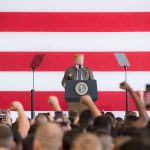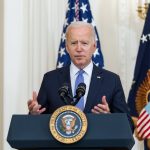In the latest display of classic Democratic disdain for accountability, Kamala Harris, the current presidential nominee, is reportedly dragging her heels on media access to levels unseen in American political history. Just as her boss, Joe Biden, famously preferred the sound of silence over any public interaction, Harris has also opted for a hide-and-seek approach with the press. Since declaring her candidacy, she has been conspicuously absent from press conferences. She has managed a staggering single sit-down interview, which was so scripted it required the assistance of her emotional support governor, Tim Walz.
Harris did muster the courage to show up for a debate, leaving some easily impressed commentators gushing over her ability to string together poetic, if empty, statements. However, the real question is whether she can handle the tough questions that might require actual substance behind those flowery phrases. The media, which typically enjoys a cozy relationship with Democratic figures, is beginning to voice its dissatisfaction about being shut out of the narrative. Jessica Koscielniak, the president of the White House News Photographers Association, recently penned a letter to the Harris campaign, accusing it of implementing a drastic “unprecedented reduction” in press access.
WH Photographers' Group Says Kamala Has Overseen an 'Unprecedented Reduction in Access' to Mediahttps://t.co/1FaY418J76
— RedState (@RedState) September 12, 2024
This situation shines a spotlight on a growing discontent among the press corps, who now feel sidelined by the very leaders they are supposed to cover. It appears that Harris, having been in the political ring long enough, has taken a leaf from Biden’s playbook by avoiding any unscripted moments since her campaign began. She has only allocated a mere fraction of the media seats usually afforded to a presidential campaign, raising eyebrows and complaints among veteran journalists who rely on comprehensive access to portray the candidate’s image accurately.
Photographers are feeling the pinch as well, citing that Harris’s reluctance to engage with the media needs a severe adjustment. One photographer noted the uphill battle faced by those tasked with documenting the campaign, emphasizing the importance of having more than a scintilla of media presence at critical events. In a twist that would make any voter wonder about the transparency of the Harris campaign, the response to the WHNPA’s requests is reminiscent of a dismissive shrug, essentially stating that more media seats or a “chaser plane” for reporters are not feasible due to limited resources.
As expected, Harris’s office brushed aside the complaints and grievances of the media, a response that would likely leave any serious journalist feeling overlooked and marginalized. The WHNPA president expressed her disappointment, pointing out the absurdity of restricting media presence to such a paltry number when historical precedent supports far more generous allocations for coverage.
With echoes of Biden’s basement campaign still resonating, it is no surprise that Harris would choose the path of least resistance, sidestepping difficult questions and avoiding scrutiny. Until the mainstream media decides to hold her accountable, it looks like she will continue to operate under the comforting cloak of minimal press interaction. As they say, if journalism in America is dead, it’s certainly not mourning over the lack of interest from figures like Harris. However, RedState and its fellow warriors in the realm of true journalism remain positioned to shine a light on this troubling trend and keep the conversation alive.




